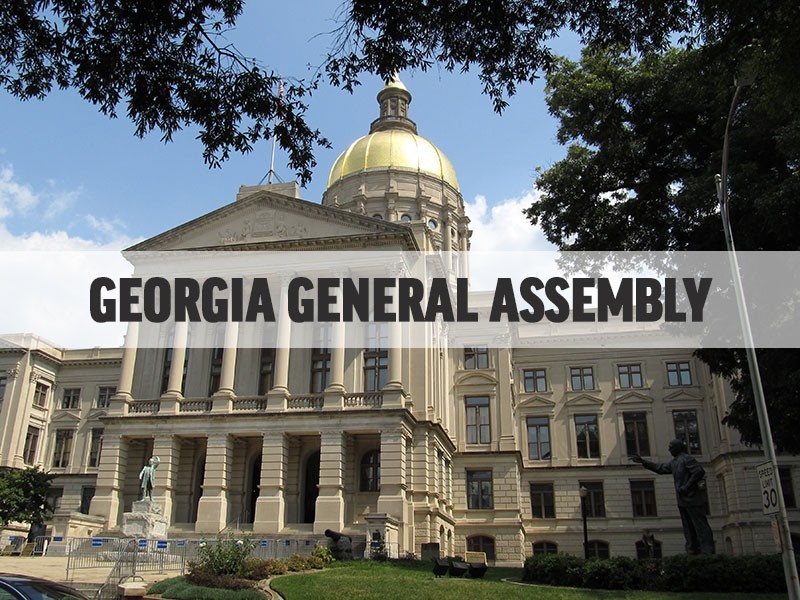GAINESVILLE – Lawmakers in Georgia have less than a month before the 2019 General Assembly is gaveled into session under the gold dome in Atlanta, and judging by the spectrum of comments from members of the local legislative delegation at last week’s Eggs & Issues Breakfast, there’s a lot of “the peoples’ work” that needs to be done.
The annual Greater Hall Chamber of Commerce gathering was held at a significantly larger venue (the Ramsey Center on the new campus of Lanier Technical College), yet it still was a sell-out, proving that the level of interest by area constituents still remains high.
But what are the priorities? Where will the new governor take the nation’s 8th most-populous state? How will things be funded? And are more laws and regulations the answer?
State Senator John Wilkinson made the final comment of the Thursday morning event, wrapping up the 35-minute “Question and Answer Session”, succinctly saying something all the legislators could agree upon: “When we begin on January the 14th…there will be hundreds of pieces of legislation, but when I look at the law books we have and the hundreds of laws that we have in our state I’m not sure what we need is a lot more laws.”
“I think we have to look at what our mandate is and that is, and there’s only one thing we have to do, and that’s pass a balanced budget,” said the senator from Georgia’s 50th District.
“We’re very fortunate that our revenues have increased and we’re in a time of prosperity,” he continued, “but in a time of prosperity I think it’s going to be very important to look at the budget… and either spend money or invest money.”
Excellent summary, but where do those best investments lie? That’s a conundrum not easily answered.
Health care - especially in the areas Certificate of Need situations and Medicare expansion - will certainly demand attention. 49th District State Senator Butch Miller called hospital availability “the elephant in the room”.
“I think we need to make sure we are protecting our hospitals that are treating our indigent health patients,” Miller said. “All of Georgia deserves health care; all of Georgia deserves access; there are 51 hospitals that have closed in the state of Georgia since 1980.”
“A lot of these hospitals are closing in rural areas and when they close they push patients that could be treated in the local area into Gainesville…and reduces the number of beds we have…so it is a far reaching effect all over the whole state,” Miller added.
Also a challenge in rural portions of the state is wireless internet availability, or the lack thereof.
Matt Dubnik, State Representative for District 29, said of the lack of high speed internet availability in rural areas, “If you have kids or grandkids you know exactly what it’s like when those speeds are slow. Imagine if you were in the logistics business, if you were in the health care business, if you were trying to do something that was truly dependent on technology. Yes, we have to look at that.”
Also sure to be brought back before the General Assembly is re-iterations of the Religious Freedom Restoration Act, something District 30 State Representative Emory Dunahoo, Jr. feels strongly about.
“This has been a topic for the last five or six years,” Dunahoo explained. “I would like to see, under (President) Bill Clinton we passed Federal RFA, for us to take and apply that to Georgia and adopt it as Georgia’s.”
“I will support it in the right form,” Dunahoo stated. “We have to understand that this is Georgia. If you want to come to Georgia you need to come on our values. We’ve been the number one state to do business in because we’ve been open…I want Georgia to grow but to remain Georgia, not California, not Oregon.”
27th District State Representative Lee Hawkins expressed strong feelings about Senior Exemptions remaining in place when school taxes are collected. While he acknowledged a crisis in school funding was near, he said other avenues of generating revenue for school districts must be sought.
“Children are our future but I think it’s time that we need to take another look at how we’re funding education in this state,” Hawkins said. “I don’t believe that it’s right for us to continue to tax those who are retired, and their property taxes keep going up and they cannot afford to live in their homes.”
“I think we need to look at opening up ESPLOST,” Hawkins suggested.
Whatever actually surfaces next month as the 236-members of the bicameral body gather for the 155th General Assembly, there certainly will be no lack of subject matter to discuss and debate.

http://accesswdun.com/article/2018/12/745057/local-delegation-awaits-discusses-2019-georgia-general-assembly
